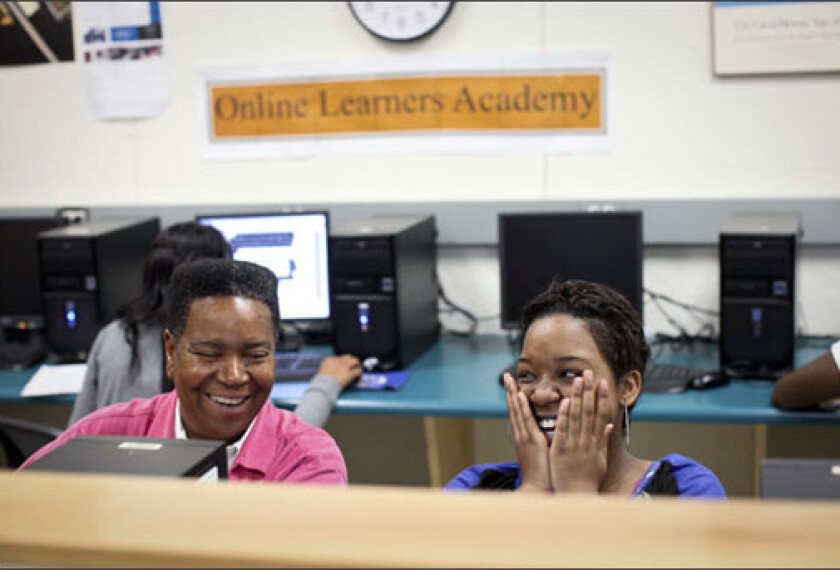Interest in online credit-recovery courses continues to surge, prompting some policy experts and ĚÇĐĶŻÂţvlog to consider whether traditional rules requiring students to spend a certain number of hours in the classroom, rather than simply demonstrate their proficiency in the subject matter, are increasingly outdated.
At least three major urban school districts—New York City, Chicago, and Boston—have recently rolled out or soon will roll out programs for online credit recovery. That means that students who have failed courses in high school can earn credits for those courses by making them up through online coursework. District policies vary in whether the students take the classes at an actual school or can do the coursework at home or in another setting.
Read a more in depth version of this article: “Districts Embracing Online Credit-Recovery Options”
Sales in the credit-recovery line of courses created by Portland, Ore.-based , one of several companies or nonprofit organizations typically tapped by schools to provide online courses, increased eightfold from 2008 to 2010, according to company officials.
Representatives from the , a statewide public school based in Orlando, and the Seattle-based say they’re noticing increasingly high demand for the use of their regular online courses for credit-recovery purposes.





